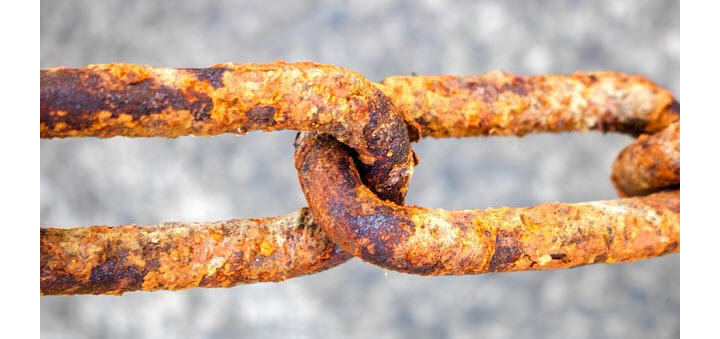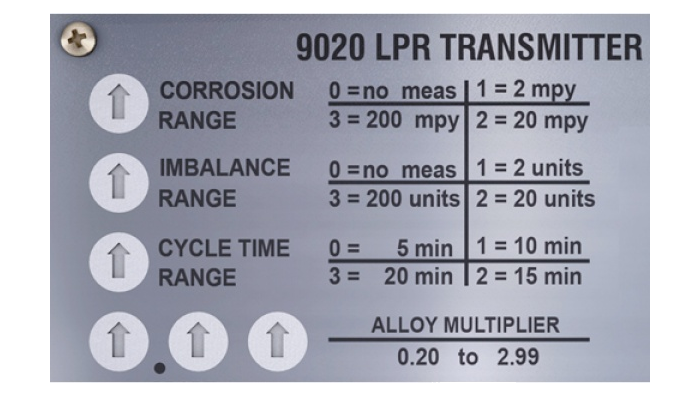-
The Importance of Corrosion Monitoring
We pair our controllers with several options for corrosion-rate monitoring.
Avoid Costly Maintenance, Downtime and Repairs
If you run an industrial facility, including cooling towers and blast chillers, you will be familiar with the danger that corrosion can cause to your equipment.
In cooling towers and chillers the heat exchange tubes can be severely damaged by corrosion and fouling, which can cause significant loss of efficiency, reduce the life-span of these units and lead to costly maintenance and replacement of these elements.
Thankfully we have a corrosion monitoring system – based around the powerful CHEMTROL® industrial grade PC110c controller.
What is corrosion?
Corrosion is when a metal dissolves, typically from a chemical or electrochemical reaction – including low pH conditions (<6.0) and high free chlorine residuals in the local environment. A number of operating parameters can influence the corrosion tendency in an aqueous environment, including conductivity, pH and the concentration of oxygen. Another factor to be aware of is fouling from uncontrolled biological growth, which can also contribute to corrosion over time.
 Ultimately corrosion can cause:
Ultimately corrosion can cause:– Reduced plant efficiency
– Equipment failure
– Facility downtime
– The costly replacement of equipmentA less obvious, and more serious type of corrosion is pitting – which occurs on materials such as metals and alloys. It manifests as microscopic corrosive points or pits, where the solution inside the pits become increasingly concentrated and corrosive over time. Galvanic corrosion can also occur in cooling systems that are manufactured from both copper and steel alloys. Microorganisms in cooling water can also cause corrosion, as the by-products they produce – include organic acids and hydrogen sulfides – which are corrosive to metals.
The benefits of corrosion monitoring
 If you want to protect your investment and reduce the life-cycle costs associated with your operation some form of corrosion monitoring can help provide:
If you want to protect your investment and reduce the life-cycle costs associated with your operation some form of corrosion monitoring can help provide: - An early warning system to alert you to damaging conditions before a corrosion-induced failure can occur.
- Insights on the parameters that have impacted your system, including the pressure, temperature, pH or flow rate.
- Evaluation of the effectiveness of corrosion prevention measures, such as chemical inhibition.
- Data to inform ongoing management measures and maintenance requirements of your facility.
The CHEMTROL® PC110c controller provides measurements of Conductivity/TDS, pH, Chlorine/Bromine (ppm), ORP and temperature, as well as corrosion and liquid level monitoring. These features can help ensure:
- Sanitizer control of biocide additions
- A low enough pH is maintained to eliminate scale formation
- Timed chemical treatment to help prevent biological fouling
- Timed biocide additions with “shock” cycles at regular intervals
We pair our controllers with several options for corrosion-rate monitoring
